- Home
- Philip Roth
Shop Talk Page 8
Shop Talk Read online
Page 8
television, owing to its widespread influence, is directly able to contribute to the greatest extent toward a moral revival. This of course presupposes ... setting up a new structure, and not only in an organizational sense but in the sense of the moral and creative responsibility of the institution as a whole and of every single member of its staff, especially its leading ones. The times we are living through offer our television a unique chance to try for something that does not exist elsewhere in the world.
The memorandum does not of course ask for the introduction of censorship, but of a supraparty arts council, a group of independent authorities of the highest spiritual and moral standards. I signed this memorandum as the president of the Czech PEN club, although personally, for myself, I thought that the desire to structure the TV of a free society in this way was rather utopian. The language of the memorandum struck me as the kind of unrealistic and moralistic language that can emerge from the euphoria of revolution.
I have mentioned that, among intellectuals especially, utopian ideas have begun to surface about how this country will link the good points of both systems—something from the state-controlled system, something from the new market system. And these ideas are probably strongest in the realm of culture. The future will show to what extent they are purely utopian. Will there be commercial television in our country, or will we continue only with subsidized, centrally directed broadcasting? And if this last does remain, will it manage to resist the demands of mass taste? We'll know only in time.
I have already told you that in Czechoslovakia literature has always enjoyed not only popularity but esteem. This is borne out by the fact that in a country with fewer than twelve million inhabitants, books by good writers, both Czech and translated, were published in editions of hundreds of thousands. What's more, the system is changing in our country at a time when ecological thinking is growing tremendously (the environment in Czechoslovakia is one of the worst in Europe), and it surely makes no sense for us to strive to purify the environment and at the same time to pollute our culture. So it is not really such a utopian idea to try to influence the mass media to maintain standards and even educate the nation. If at least some part of that idea could be realized, it would certainly be, as the authors of the memorandum say, a unique event in the history of mass communications. And after all, impulses of a spiritual character really have, from time to time, come from this little country of ours in the center of Europe.
Isaac Bashevis Singer
[1976]
Some months after I first read Bruno Schulz and decided to include him in the Penguin series "Writers from the Other Europe," I learned that when his autobiographical novel, The Street of Crocodiles, appeared in English fourteen years ago, it had been reviewed and praised by Isaac Bashevis Singer. Since Schulz and Singer were born in Poland of Jewish parents within twelve years of each other—Schulz in 1892 in the provincial Galician city of Drohobycz, Singer in Radzymin, near Warsaw, in 1904—I telephoned Singer, whom I had met socially once or twice, and asked if we might get together to talk about Schulz and about what life had been like for a Jewish writer in Poland during the decades when they were both coming of age there as artists. Our meeting took place in Singer's Manhattan apartment at the end of November 1976.
Roth: When did you first read Schulz, here or in Poland?
Singer: I read him in the United States for the first time. I must tell you, like many another writer I approach a book of fiction always with some kind of doubts; since the majority of writers are not really good writers, I assume when I am sent a book that it's going to be not too good a book. And I was surprised the moment I began to read Schulz. I said to myself, here is a first-class writer.
Roth: Had you known Schulz's name before?
Singer: No, I didn't even know Schulz's name. I left Poland in 1935. Schulz was not really known then—and if he was known, I didn't know about him. I never heard of him. My first impression was that this man writes like Kafka. There are two writers about whom they say they write like Kafka. One was Agnon. Agnon used to say that he never read Kafka, but people have some doubts about it. As a matter of fact he did read Kafka, there is no question about it. I wouldn't say he was influenced by Kafka; there is a possibility that two or three people write in the same kind of style, in the same spirit. Because not every person is completely unique. If God could create one Kafka, He could have created three Kafkas, if He was in the mood to do so. But the more I read Schulz—maybe I shouldn't say it—but when I read him, I said he's better than Kafka. There is greater strength in some of his stories. Also he's very strong in the absurd, though not in a silly way but in a clever way. I would say that between Schulz and Kafka there is something that Goethe calls Wahlverwandtschaft, an affinity of souls that you have chosen for yourself. This might have been the case completely with Schulz, and it might also be to a degree with Agnon.
Roth: To me it seems as though Schulz could not keep his imagination away from anything, including the work of other writers, and particularly the work of someone like Kafka, with whom he does seem to have had important affinities of background and temperament. Just as in The Street of Crocodiles he reimagines his hometown of Drohobycz into a more terrifying and wonderful place than it actually was—partly, as he says, to be "liberated from the tortures of boredom"—so, in a way, he reimagines bits and pieces of Kafka for his own purposes. Kafka may have put some funny ideas into his head, but that they serve different purposes is probably best exemplified by the fact that in Schulz's book the character transformed into a cockroach isn't the son but the father. Imagine Kafka imagining that. Out of the question. Certain artistic predilections may be similar, but these predilections are in league with wildly different desires. As you know, Schulz translated The Trial into Polish in 1936. I wonder if Kafka was ever translated into Yiddish.
Singer: Not that I know of. As a young man I read many of the writers of the world in Yiddish; if Kafka would have been translated into Yiddish, this would have been in the thirties and I would have known about it. I'm afraid there is no Yiddish translation. Or maybe there is and I don't know about it, which is also possible.
Roth: Do you have any idea why Schulz wrote in Polish rather than in Yiddish?
Singer: Most probably he was brought up in a home that was already half assimilated. Probably his parents spoke Polish. Many Jews in Poland—after Poland became independent, and even before—brought up their children to speak Polish. That happened even in Russian Poland, but especially in Galicia, the part of Poland that belonged to Austria and where the Poles had a kind of autonomy and were not culturally suppressed. It was a natural thing that people who themselves spoke Polish brought up their children in this way. Whether it was good or bad I don't know. But since Polish was, so to say, his mother tongue, Schulz had no choice, since a real writer will write not in a learned language but in the language he knows from his childhood. And Schulz's strength, of course, is in the language. I read him first in English, and though the translation is a good one, when I read him later in Polish I saw this strength very clearly.
Roth: Schulz was born of Jewish parents in Poland in 1892. You were born in 1904. Was it unusual for a Polish Jew of that generation to write in Polish, or to write in Yiddish, as you did?
Singer: The Jews had a number of important writers who wrote in Polish, and all of them were born more or less at this time, in the 1890s. Antoni Slonimski, Julian Tuwim, Józef Wittlin—all these writers were about this age. They were good writers, talented writers, but nothing special. Some of them, however, were very strong in the Polish language. Tuwim was a master of Polish. Slonimski was a grandson of Chaim Zelig Slonimski, who was the founder of the Hebrew newspaper Hatsefira in Warsaw. Slonimski was converted to Catholicism by his parents when he was a child, while Tuwim and Wittlin remained Jews, though Jews only in name. They had very little to do with Yiddish writers. My older brother, Israel Joshua Singer, was born more or less at the same time and was a known Yiddish writer in
Poland and had no association with either of these writers. I was still a beginner, in Poland, and I certainly had nothing to do with them. We Yiddish writers looked at them as people who had left their roots and culture and become a part of Polish culture, which we considered younger and perhaps less important than our culture. They felt that we Yiddish writers were writing for ignorant people, poor people, people without education, while they were writing for readers who went to universities. So we both had a good reason to despise each other. Though the truth is, they had no choice and we had no choice. They didn't know Yiddish, we didn't know Polish. Although I was born in Poland, Polish was not as close to me as Yiddish. And I spoke it with an accent. As a matter of fact, I speak all languages with an accent.
Roth: Not Yiddish, I take it.
Singer: Yes. The Litvaks say I speak Yiddish with an accent.
Roth: I want to ask you about Warsaw in the thirties. Schulz studied architecture in Lwów as a young man, and then, as far as I know, he returned to the Galician town of Drohobycz, where for the rest of his life he taught drawing in the high school. He did not leave Drohobycz for any significant length of time until his middle or late thirties, when he came to Warsaw. What kind of cultural atmosphere would he have found in Warsaw then?
Singer: There are two things to remember about Schulz. First of all, he was a terribly modest person. The very fact that he stayed in this town, which was far away from the center of everything, shows that he was highly modest, and also kind of afraid. He felt like a yokel who's afraid to come to the big city and to meet people who are already famous. He was afraid, most probably, that they would make fun of him or they would ignore him. I think this man was a bundle of nerves. He suffered from all the inhibitions that a writer can suffer. When you look at his picture you see the face of a man who never made peace with life. Tell me, Mr. Roth, he was not married. Did he have some girlfriends?
Roth: If his drawings are any indication, I would think he had strange relations with women. A recurring subject in the drawings that I've seen is female dominance and male submission. There is an eerie, almost tawdry erotic suggestiveness to some of these pictures—small, supplicating men looking not unlike Schulz himself and remote, half-naked adolescent girls or statuesque, painted shopgirls. They remind me a little of the "trashy" erotic world of another Polish writer, Witold Gombrowicz. Like Kafka, who also never married, Schulz is said to have had long and intense correspondences with women and to have lived a good deal of his erotic life through the mails. Jerzy Ficowski, his biographer, who wrote the introduction to the Penguin edition, says that The Street of Crocodiles began as a series of letters to a close woman friend. They must have been some letters. According to Ficowski, it was this woman who urged Schulz—who was indeed a deeply inhibited person—to see these letters as a work of literature. But to return to Schulz and Warsaw—what was the cultural life like when he got there in the middle thirties? What was the dominant mood or ideology among writers and intellectuals?
Singer: I would say they had almost the same movement that we have today—kind of leftist. This was true of the Jewish writers who were writing in Polish. They were all leftist or considered leftists by the old Polish writers, who looked upon these Jewish writers, actually, as intruders.
Roth: Because they were writing in Polish?
Singer: Because they were writing in Polish. They might have said, "Why the hell don't they write in their own jargon, their own Yiddish—what do they want from us Poles?" Still, in the thirties, these Jewish writers became very important despite their adversaries. First, because they were quite good writers, though not great writers; second, because they were leftists, and that was the trend then; and third, because they were energetic, they published often in the magazine Wiadomosci Literackie, they wrote for the variety theater, and so on. Sometimes these Jewish writers wrote things that sounded anti-Semitic to the Jews. Of course I did not agree that it was anti-Semitism, because some critics said the same thing about me. Although I wrote in Yiddish, they said, "Why do you write about Jewish thieves and Jewish prostitutes?" and I said, "Shall I write about Spanish thieves and Spanish prostitutes? I write about the thieves and prostitutes that I know."
Roth: When you wrote in praise of Schulz back in 1963, you did have certain criticisms to make of him. You said, "If Schulz had identified himself more with his own people, he might not have expended so much energy on imitation, parody, and caricature." I wonder if you have any more to say about that.
Singer: I felt so when I wrote this and I think I feel so too now. There is great mockery in the writing both of Schulz and of Kafka, although in Kafka the mockery is more hidden. I think that Schulz had enough power to write real serious novels but instead often wrote a kind of parody. And I think basically he developed this style because he was not really at home, neither at home among the Poles nor at home among the Jews. It's a style that's somewhat characteristic also of Kafka, because Kafka also felt that he had no roots. He was a Jew who wrote in German and lived in Czechoslovakia, where the language was actually Czech. It is true that Kafka might have been more assimilated than Schulz—he didn't live in as Jewish a town as Drohobycz, which was full of Hasidim, and his father was maybe more of an assimilationist than Schulz's father, but the situation was basically the same, and as stylists the two writers were more or less of the same cut.
Roth: It's possible to think of Schulz's "rootlessness" another way: not as something that held him back from writing serious novels but as a condition upon which his particular talent and imagination thrived.
Singer: Yes, of course, that is true. If a genuine talent cannot be nourished directly from the soil, he will be nourished by something else. But from my point of view, I would rather have liked to have seen him as a Yiddish writer. He wouldn't have had all the time to be as negative and mocking as he was.
Roth: I wonder if it isn't negativism and mockery that drive Schulz so much as boredom and claustrophobia. Perhaps what sets him off on what he calls a "counteroffensive of fantasy" is that he is a man of enormous artistic gifts and imaginative riches living out his life as a high school teacher in a provincial town where his family are merchants. Also, he is his father's son, and his father, as he describes him, was, at least in his later years, a highly entertaining but terrifying madman, a grand "heresiarch," fascinated, Schulz says, "by doubtful and problematical forms." That last might be a good description of Schulz himself, who seems to me wholly conscious of just how close to madness, or heresy, his own agitated imagination could carry him. I don't think that with Schulz, any more than with Kafka, the greatest difficulty was an inability to be at home with this people or with that people, however much that may have added to his troubles. From the evidence of this book, it looks as though Schulz could barely identify himself with reality, let alone with the Jews. One is reminded of Kafka's remark on his communal affiliations:
"What have I in common with the Jews? I have hardly anything in common with myself and should stand very quietly in the corner, content that I can breathe." Schulz needn't have remained in Drohobycz if he found it all that stifling. People can pick up and go. He could have stayed in Warsaw once he finally got there. But perhaps the claustrophobic environment that didn't suit the needs of the man was just what gave life to his kind of art. Fermentation is a favorite word of his. It may only have been in Drohobycz that Schulz's imagination fermented.
Singer: I think also that in Warsaw he felt he ought to get back to Drohobycz because in Warsaw everybody said, "Who is Schulz?" Writers are not really ready to see a young man from the provinces and immediately to say, "You are our brother, you are our teacher"—they are not inclined to do so. Most probably they said, "Another nuisance with a manuscript." Also, he was a Jew. And these Jewish writers in Poland, who were really the rulers of the literary field, they were cautious about the fact that they were Jews.
Roth: Cautious in what way?
Singer: They were called Jews by their adversaries, by those w
ho did not like them. This was always the eternal reproach. "What are you doing, Mr. Tuwim, with your Hebrew name, writing in Polish? Why don't you go back to the ghetto with Israel Joshua Singer and the others?" That is the way it was. So when there came another Jew who writes Polish, they felt not really comfortable about it. Because there came another problem child.
Roth: I take it that it was easier to assimilate into artistic or intellectual circles than into the bourgeois world of Warsaw.
Singer: I would say that it was more difficult. I will tell you why. A Jewish lawyer, if he didn't like to be called Levin or Katz, could call himself Levinski or Kacinski and people didn't bother him. But about a writer they were always cautious. They would say, "You have nothing to do with us." I think that some small similarity exists even in this country with the Jewish writers who write in English and are at home in English. No writer here would say to Saul Bellow or to you, "Why don't you write in Yiddish, why don't you go back to East Broadway?" Yet some small part of that still exists. I would think that there are some conservative writers here or critics who would say that people like you are not really American writers. However, here the Jewish writers are not really ashamed of being Jewish and they don't apologize all the time. There, in Poland, there was an atmosphere of apologizing. There they tried to show how Polish they were. And they tried of course to know Polish better than the Poles, in which they succeeded. But still the Poles said they have nothing to do with us ... Let me make it clearer. Let's say if we would have now, here, a goy who would write in Yiddish, if this goy would be a failure, we would leave him in peace. But if he would be a great success, we would say, "What are you doing with Yiddish? Why don't you go back to the goyim, we don't need you."

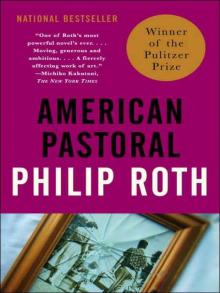 American Pastoral
American Pastoral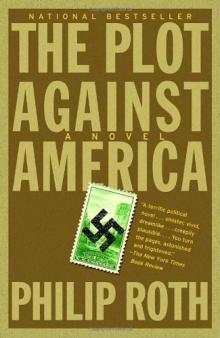 The plot against America
The plot against America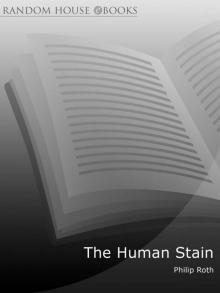 The Human Stain
The Human Stain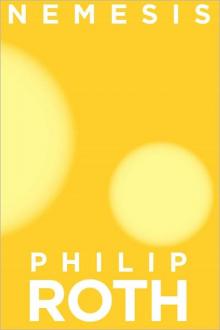 Nemesis n-4
Nemesis n-4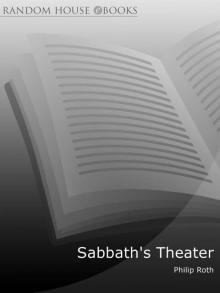 Sabbath’s Theater
Sabbath’s Theater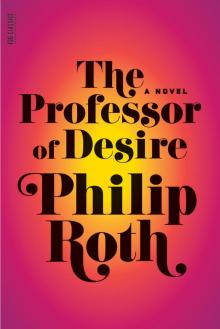 The Professor of Desire
The Professor of Desire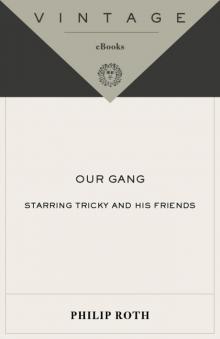 Our Gang
Our Gang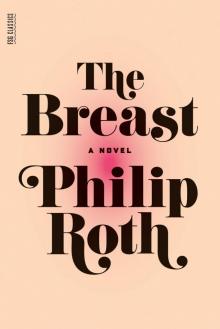 The Breast
The Breast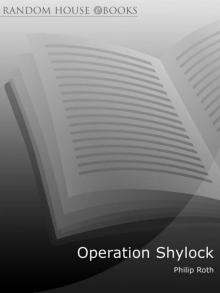 Operation Shylock
Operation Shylock The Dying Animal
The Dying Animal Letting Go
Letting Go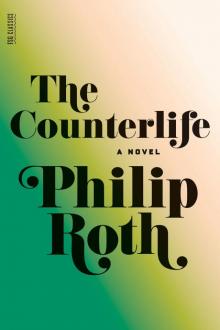 The Counterlife
The Counterlife Everyman
Everyman Nemesis
Nemesis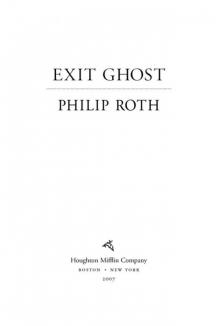 Exit Ghost
Exit Ghost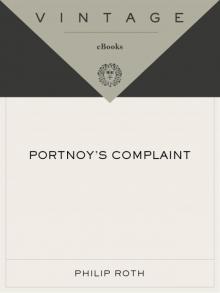 Portnoy's Complaint
Portnoy's Complaint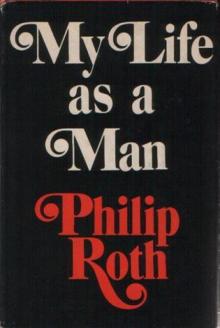 My Life as a Man
My Life as a Man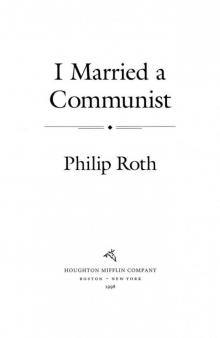 I Married a Communist
I Married a Communist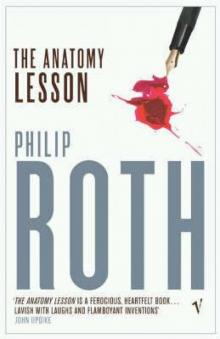 The Anatomy Lesson
The Anatomy Lesson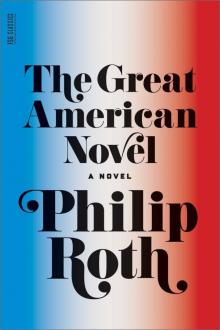 The Great American Novel
The Great American Novel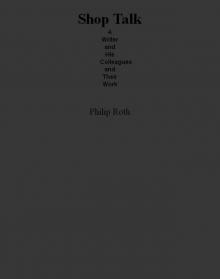 Shop Talk
Shop Talk The Humbling
The Humbling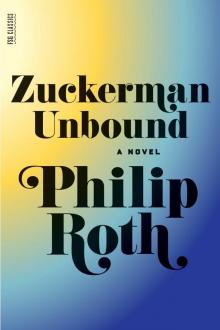 Zuckerman Unbound
Zuckerman Unbound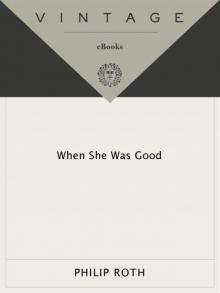 When She Was Good
When She Was Good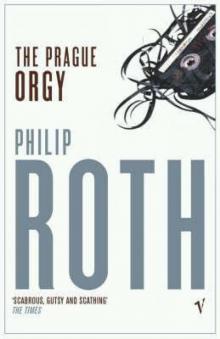 The Prague Orgy
The Prague Orgy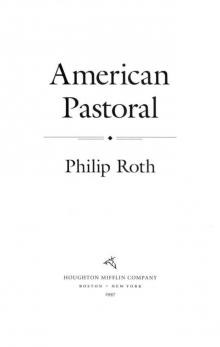 American Pastoral (Nathan Zuckerman)
American Pastoral (Nathan Zuckerman) Goodbye, Columbus
Goodbye, Columbus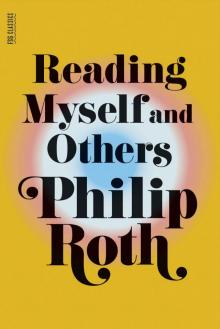 Reading Myself and Others
Reading Myself and Others